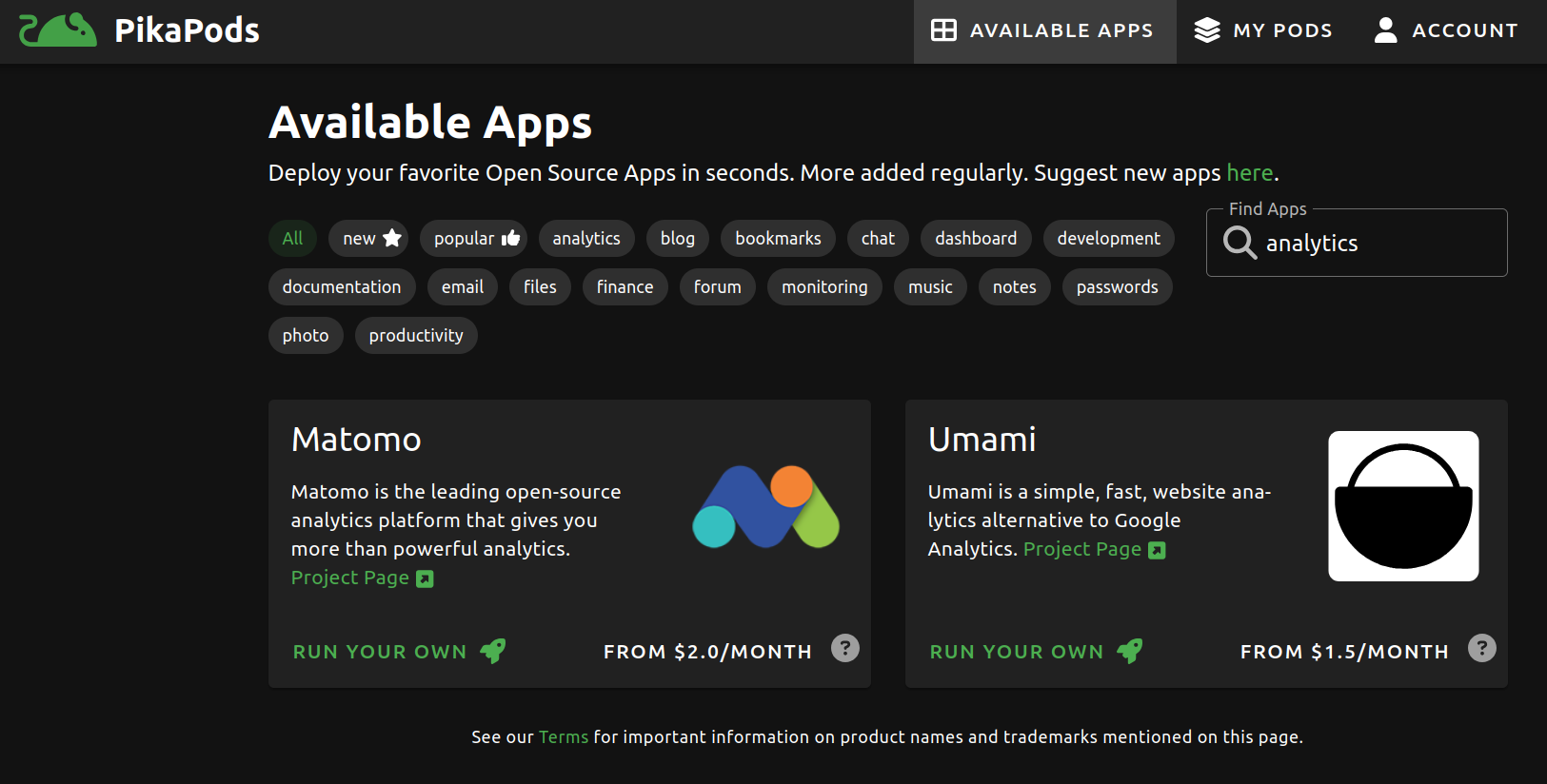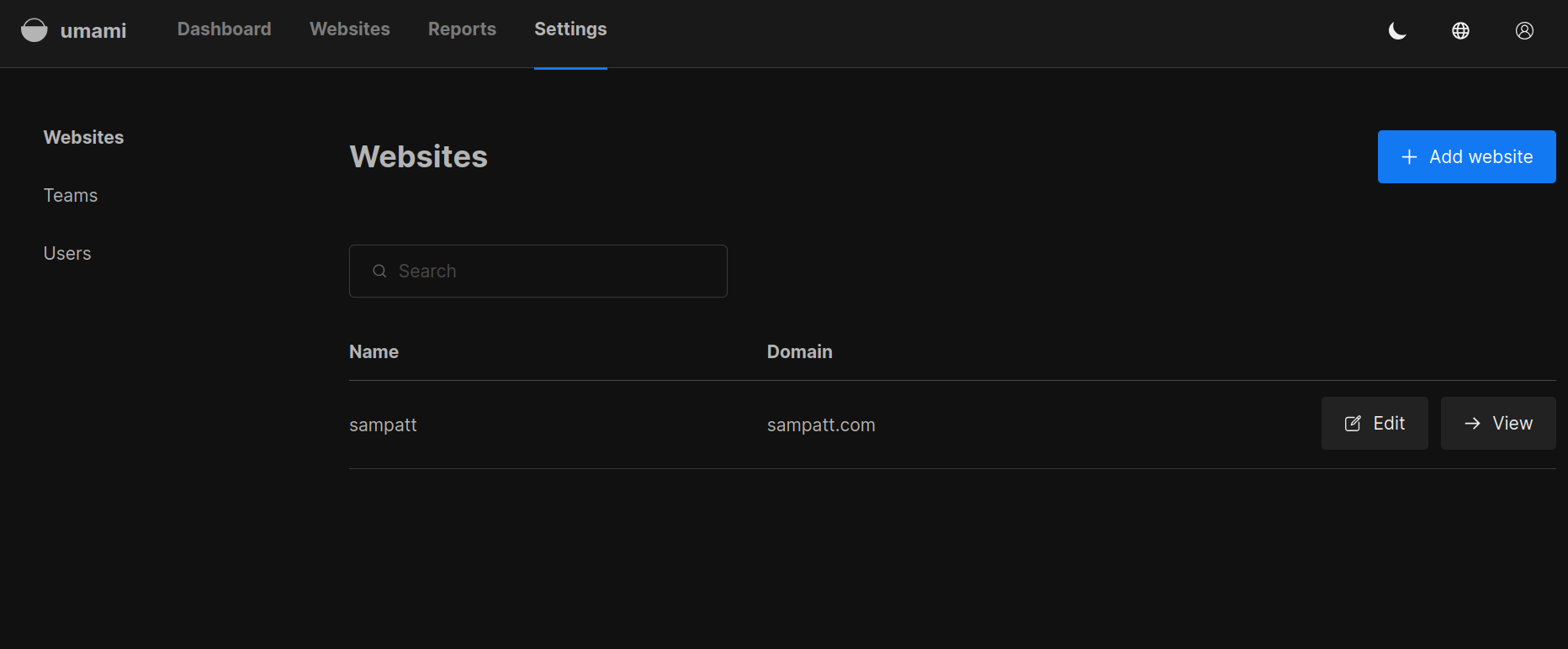Avoiding Google with Umami for Open Source Analytics
In Which I "Self-Host" another Pikapods Instance and don't even need AI
Summary
I use Umami, an open source alternative to Google Analytics. It’s dead easy, especially if you host it on Pikapods.
Background
I write for many reasons, some of which I understand.
One reason: I believe that other people reading my writing will benefit myself and those reading. But words existing in a public space doesn’t mean they’re being consumed, and that makes it hard for me to know their impact.
One solution is to not care, to write solely for the love of it, or from compulsion, or just assume my words go somewhere apart from my public Git repo where this site is built from. I’m not nearly cool or artistic enough for that approach - I want to see the numbers.
I don’t like Google though. In general, I’m skeptical of large organizations, either governments or businesses, particularly when their methods involve data collection on a massive scale. In 2025 it’s difficult to take a hard line on this as a techie, but there are small choices you can make here and there to avoid using the big guys.
So when I decided to begin writing more frequently, I immediately considered how to do analytics. I had already eschewed Substack, as I’ve written about, and I just couldn’t bring myself to do Google Analytics. So I began researching alternatives.
Research
I quickly found Umami, which bills itself as:
an open-source, privacy-focused web analytics tool that serves as an alternative to Google Analytics.
Sounds good to me. A few people on Reddit complained that the project team had made a few breaking changes recently, and they were annoyed at this. That worries me a little but, but in this case I’m offloading the updating process to a third party.
Only one more thing could make it perfect: is it hosted on Pikapods?

Yes! I love Pikapods so much. For dirt cheap, you pay them to host open source projects for you. I’m currently using them for Hoarder (data hoarding) and Listmonk (manages my newsletter).
I see they also offer Matomo, which I saw mentioned as a popular open source option, but my research indicated that it was heavier duty than Umami, and frankly I don’t need anything special.
Installation
Because I’m using Pikapods, the installation process consists of clicking “Add pod.” 20 seconds later, I’m looking at the Umami pod interface, which is giving me a warning to:
Immediately change the default admin details
adminandumami.
The interface is simple, as promised. I changed the admin password. Also, default dark theme. Nice.

I add my website, and it tells me:
To track stats for this website, place the following code in the <head>...</head> section of your HTML.
The code is a short one-liner with a script from my Umami instance and a website ID.
Is that it? I drop the code into my index.html, and push the changes to my Github repo.
Testing
After it rebuilds, I check the realtime stats section on Umami. Sure enough, there I am:

That was ridiculously easy.
I planned on making a whole post about this (I guess I did). I typically ask Claude a bunch of questions about integration, etc. But this took about 15 minutes and I didn’t need any help.
I’m gonna go play Geoguessr now.